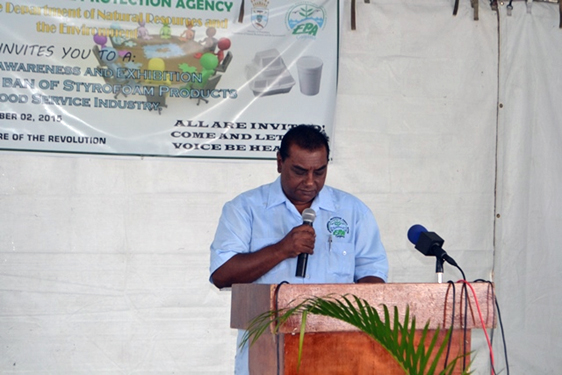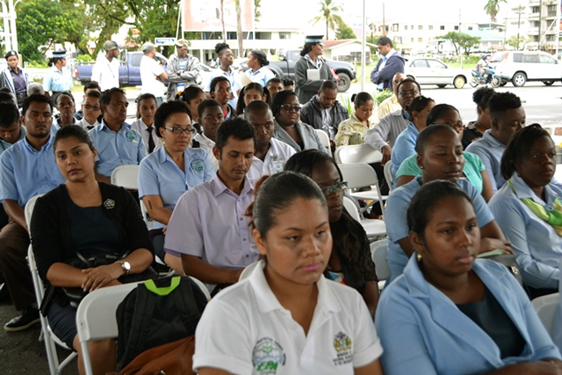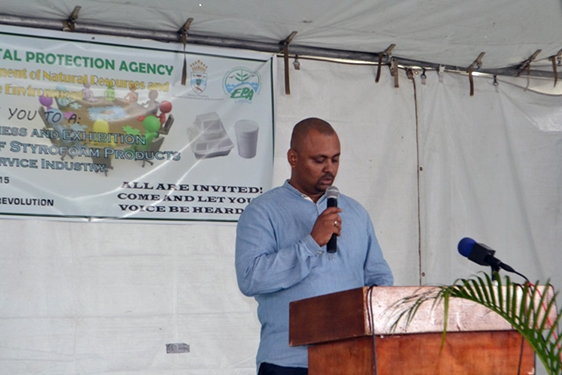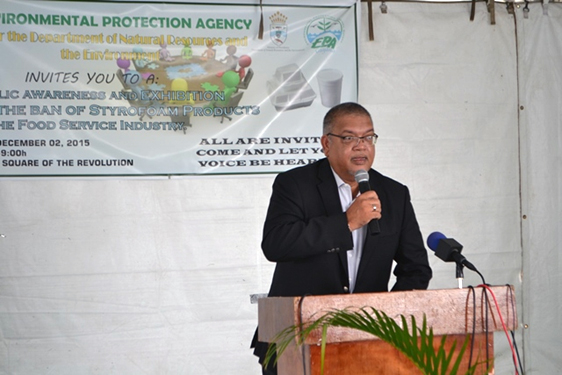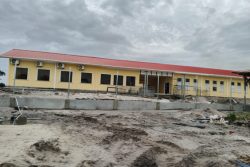The Environmental Protection Agency (EPA) under the auspices of the Ministry of Governance, Department of Natural Resources and the Environment held a public consultation and an exhibition of biodegradable alternatives to Styrofoam.
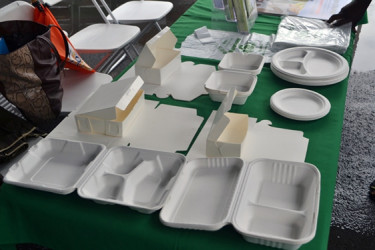
According to a press release from the Government Information Agency (GINA), the event held yesterday at the Square of the Revolution had as its primary objective, the facilitation of the exchange of information among all interested parties to assist in the implementation of the importation ban on Styrofoam products for use in the food industry effective January 1, 2016.
Styrofoam, according to the release, accounts for two per cent of the municipal garbage in Georgetown and takes an average of 500 years to break down and is known to clog the drains which results in flooding and the proliferation of vector borne diseases.
Present at the occasion, were business operators, industry stakeholders in addition to the general public. On display at the exhibition, were packing materials and packages inclusive of boxes and cups for use in the food industry.
Executive Director of the EPA, Dr Indarjit Ramdass, in his address said, the agency is promoting 100 per cent biodegradable and compostable plant fibre-based products which have met the ASTM D6868 standards (the specification covering biodegradable plastics and products which in its entirety is designed to be composted in municipal and industrial aerobic composting facilities) and in addition to which, the Styrofoam alternative must be certified by the Biodegradable Products Institute (BPI.)
Even though a national standard for Styrofoam alternative has not yet been established, Ramdass said, the agency has already commenced the process.
In order to effectively institute the Styrofoam ban, the EPA is expected to collaborate with the Ministries of Legal Affairs and Finance, and the Guyana Revenue Authority (GRA.)
A key part of the implementation of the ban, Ramdass said, is education and awareness and for which, the EPA will attempt to have panel discussions, presentations, radio ads and TV programmes among other activities in order to inform persons of their responsibilities.
In his address, Chairman, Trade and Investment sub-committee, Private Sector, Ramesh Dookhoo issued a warning about the need to prohibit the illegal importation of Styrofoam, “let us not be caught in a dilemma like our Caricom sister Haiti who has banned Styrofoam for two consecutive years, and yet it is still the worst environmental issue in the country.”
